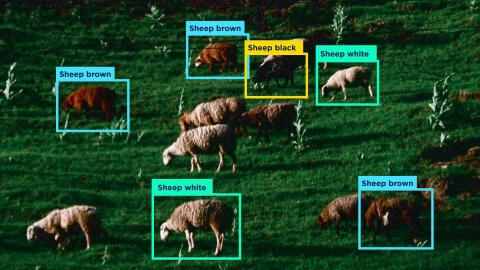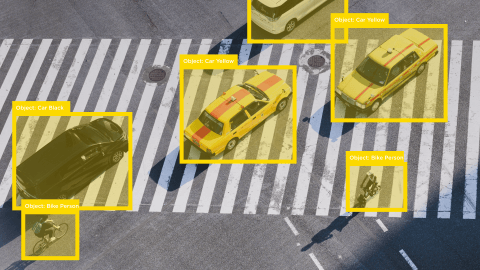The healthcare industry is undergoing a revolutionary transformation with generative AI at its heart. This technology disrupts conventional medical practices and workflows. With its innovative capabilities, generative AI promises to revolutionize patient care, streamline medical processes, and drive medical breakthroughs.
In 2022, generative AI in the global healthcare market was worth $1,070 million, and it is expected to reach approximately $21,740 million by 2032. Market leaders readily adopt this technology, setting the industry trend. In June 2023, Mayo Clinic and Google Cloud declared a partnership to boost the use of generative AI in healthcare to improve medical research, diagnoses, and patient care.
In this article, we will explore the versatile GenAI use cases in healthcare, challenges, advantages, applications, real-world examples, and the impact of GenAI on the future of healthcare.
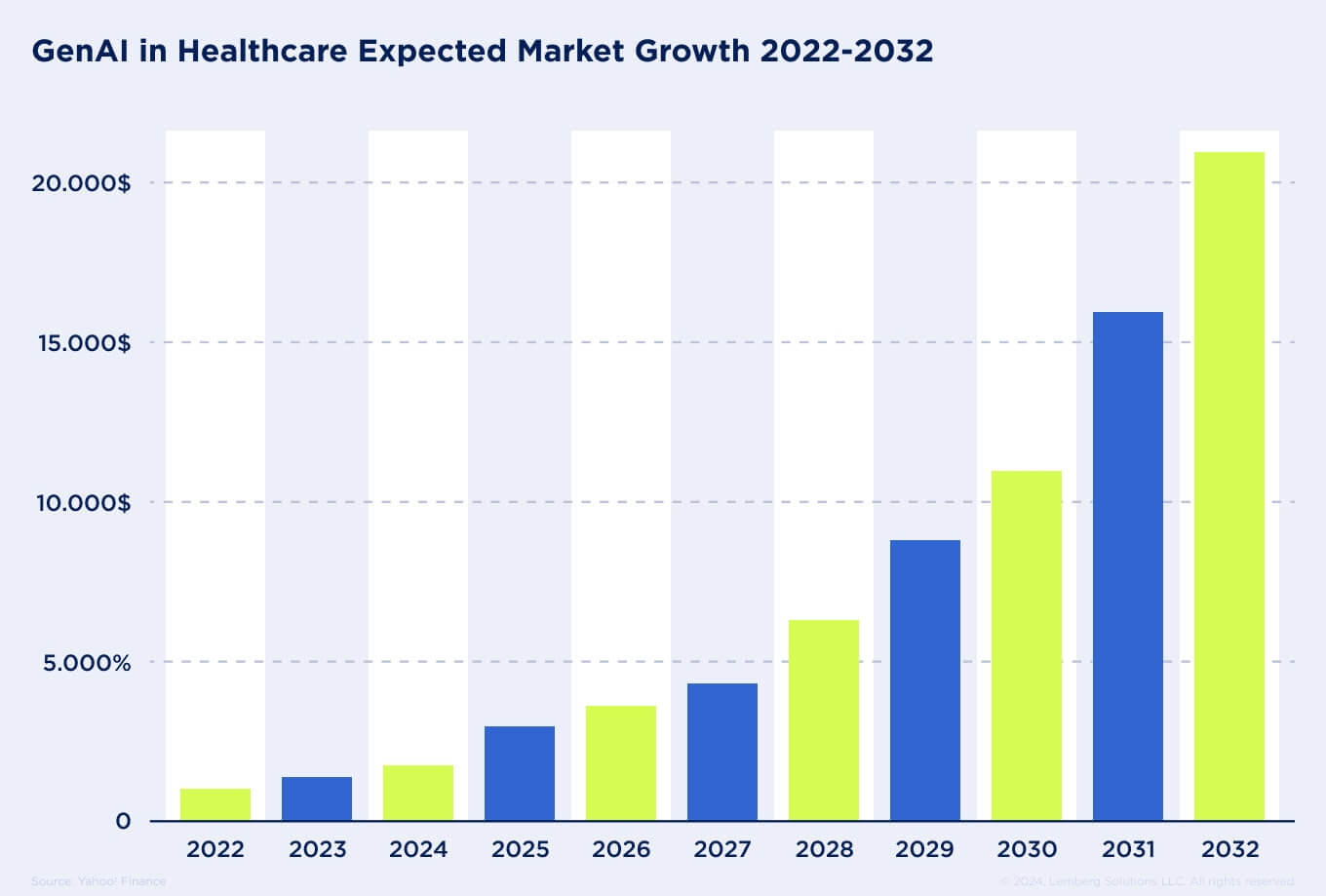
What is generative AI in the medical field?
Generative AI in the medical field uses generative models to generate specific outputs within the healthcare and medical domain. Generative AI, often based on techniques like generative adversarial networks (GANs) or variational autoencoders (VAEs), can be used to improve medical images, help process patient data, and facilitate administrative tasks.
GenAI is a valuable tool for the automation of routine tasks and enhancing processes prone to errors. That is why healthcare professionals should consider the integration of GenAI models into their administrative work and patient communication.
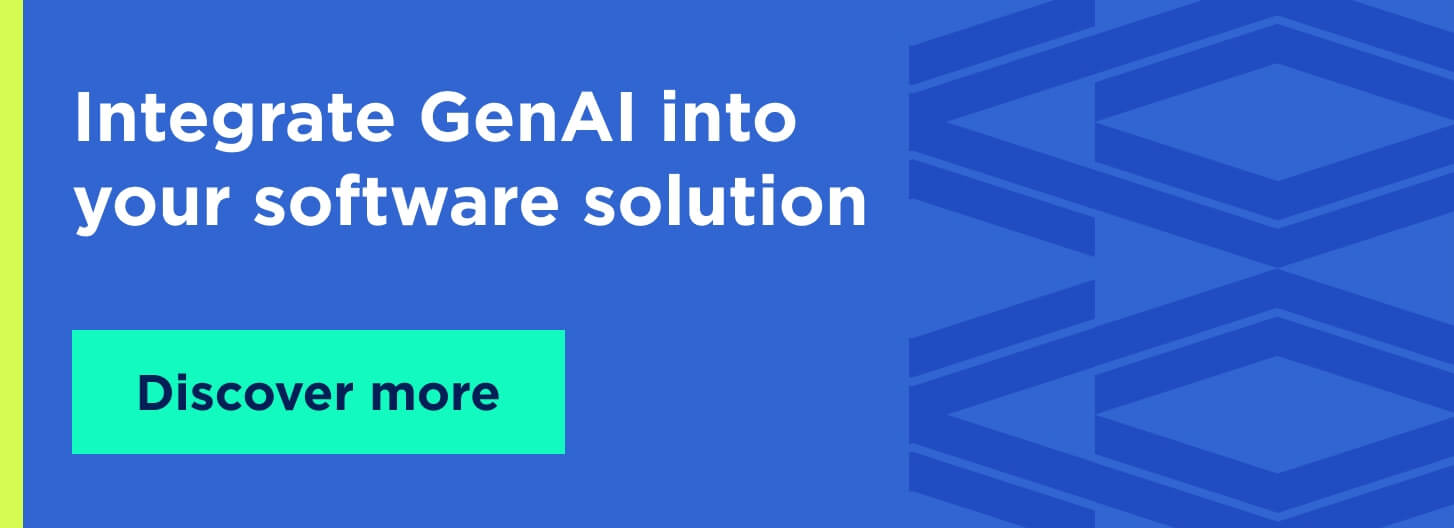
How will generative AI impact healthcare?
Presently, hospital workers are burdened with numerous patient forms, post-visit notes, and various administrative duties that take much time and lead to employee burnout. Medical professionals are responsible for carrying an administrative workload. It is expected that under the supervision of clinicians, GenAI will provide discharge summaries in any language to enhance comprehension. It could also immediately generate checklists and clinical orders. Generative AI has the potential to enhance the functionality of electronic health records (EHRs). Since some routine tasks are optimized with GenAI, physicians will devote more time to patient treatment and improve the overall healthcare experience.
Moreover, generative AI is a valuable technology that can help streamline the operations of private insurance companies, ensuring they deliver top-notch services to their customers. It’s a great assistant for operations demanding work with large volumes of data and logs. Doing it manually is a time-consuming process. With GenAI, employees will get swiftly summarized data and an opportunity to focus on more important tasks.
Numerous user inquiries demonstrate that GenAI will be extremely beneficial for medical insurance companies. Usually, insurance specialists have to process user data manually. However, with GenAI, they can quickly get the necessary information from various files and insurance plans. GenAI can accelerate and improve their work with claims and user complaints.
As you can see, healthcare is one of the top industries where GenAI is adopted in the workplace in the US.
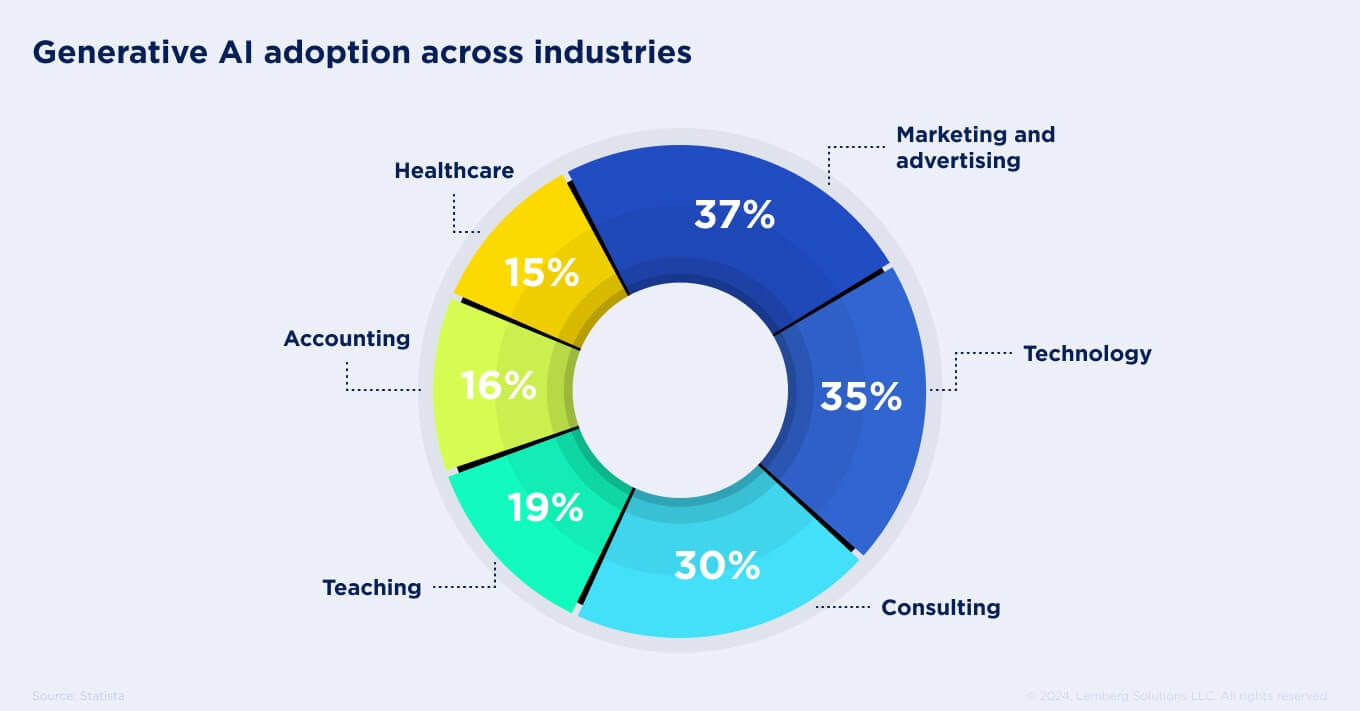
What are the challenges of generative AI in healthcare?
Generative AI in healthcare is a promising solution for the medical field, yet it may be difficult to implement if you have never worked with this technology. Additionally, healthcare professionals will be worried about GenAI’s access to sensitive data and treatment responsibility. However, an experienced tech partner can help avoid such pitfalls.

Data privacy and security
One of the primary challenges in deploying generative AI in healthcare is securing patient data. Health information is highly sensitive and must be protected, and an organization working with it should be regulatory compliant to avoid any penalties. Businesses need to follow local regulations, such as the Health Insurance Portability and Accountability Act (HIPAA) in the US and EU medical device regulations (MDR). The use of AI algorithms that generate, process, and store patient information requires preventing breaches and unauthorized access through security measures such as encryption and access controls.
Data quality
Effective generative AI models require large and high-quality datasets for training. In healthcare, obtaining such datasets can be challenging due to privacy concerns and data fragmentation. Variations within demographic groups and differences in data collection methods may cause dataset shifts. Moreover, AI models can be potentially biased (e.g., gender, age, and geographic location). Since models are trained on large varieties of data, they can inherit specific biases that can be difficult to identify.
Treatment responsibility
Healthcare professionals should perceive generative AI as a tool that helps them with administrative work and patient treatment. GenAI models cannot undertake decision-making roles in healthcare, at least not yet. Establishing clear lines of accountability is a must in this field.
Integration into medical workflow
Integrating GenAI into existing clinical workflows and ensuring that healthcare professionals can quickly adopt these tools is another challenge. Resistance to change and the lack of training can impede the adoption of generative AI solutions in healthcare facilities. That’s why hospitals should ensure that workers have all the needed guidelines and resources to make GenAI integration as smooth and easy as possible.
Lack of implementation expertise
Generative AI involves the use of complex algorithms and models, which require a deep understanding of NLP. Few companies have in-house GenAI expertise and tech capacity to develop AI-powered customer assistants and solutions that help extract valuable insights from large datasets and automate certain documentation processes. Our data science team comprises experienced engineers who can help you integrate GenAI into your routine processes.
Even though the healthcare industry's challenges persist, GenAI brings innovation, adaptability, and immediate value, offering a pathway for companies to drive transformative change within the sector.
Generative AI applications in healthcare
Leveraging GenAI in healthcare goes beyond chatbots in medical apps. Let's dive into key GenAI in healthcare use cases:
Patient consultation
Generative AI can improve patient care in terms of patient consultation. GenAI can create post-consultation summaries and provide care notes to help physicians reduce manual work. Besides, GenAI may also assist in workflow optimization and scheduling by working with your email data and providing the needed output about appointments.
Documentation
The burden of manual documentation is challenging for healthcare professionals with busy schedules. Transcribing conversations with patients into a digital record is a time-consuming task, contributing to increased professional burnout levels. A study has shown that medical professionals spend 35% of their time documenting patient data. They are worried this may lead to reduced time for patient treatment and consultation.
Generative AI can help with these manual tasks by summarizing needed information and generating accurate, ready-to-use notes and documents.
Medical chatbots
Chatbots powered with GenAI technology can help with patient queries. Such a tool enables physicians to delegate certain types of medical questions to GenAI since it can provide personalized answers. For example, a chatbot can help a person to check which healthcare professional they should communicate with according to their symptoms.
Our data science team created such a chatbot to help you use GenAI with your custom dataset. Learn how the chatbot works and check its features here.
Check out the percentage of consumers from all over the world who think that GenAI can help them with medical suggestions.
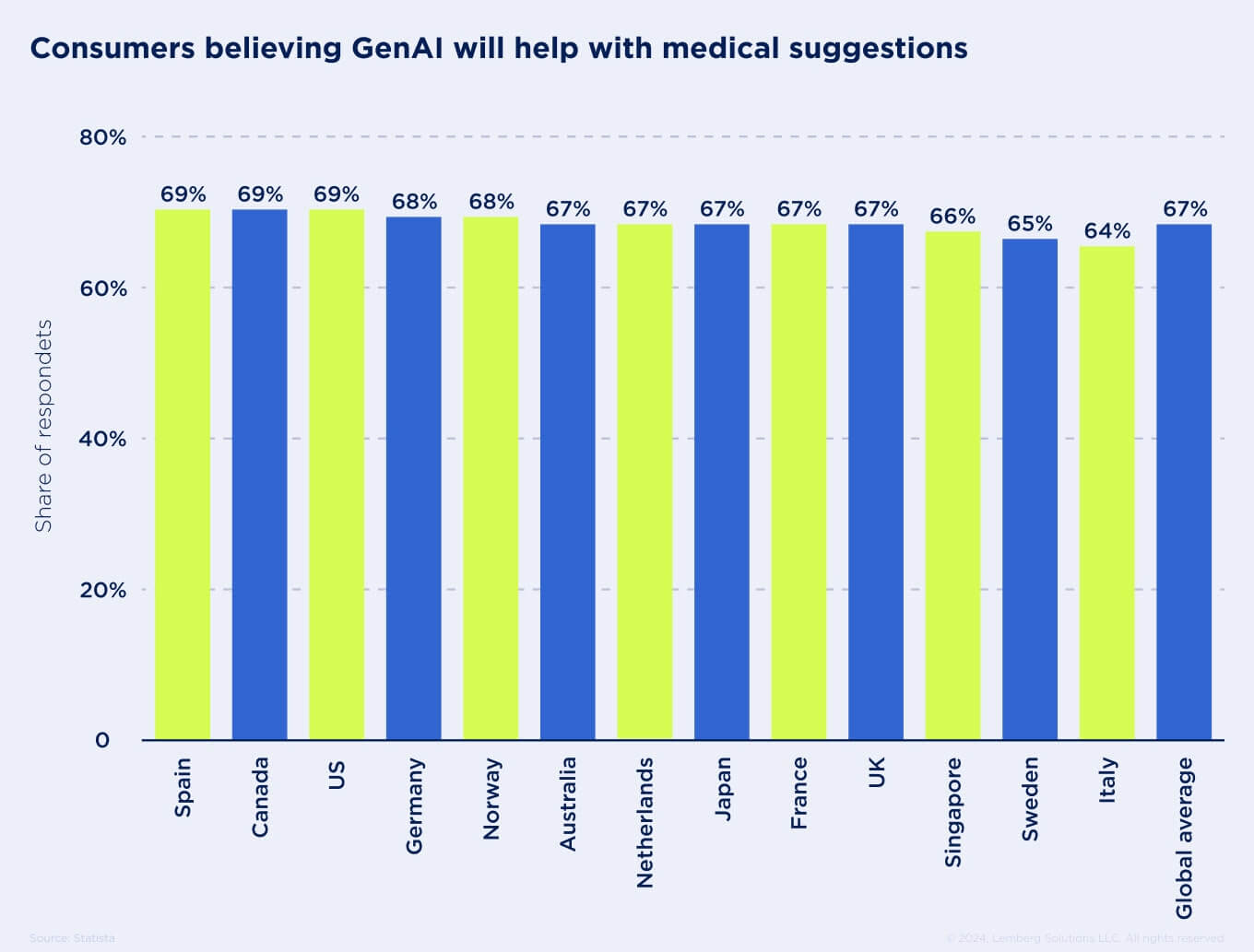
Medical querying
Powered by NLP, GenAI can process vast amounts of medical literature to extract relevant information for healthcare professionals and provide it in the form of a comprehensive brief. It can help doctors stay up-to-date with the latest research and treatment guidelines, ultimately improving patient care.
Generative AI advantages for the healthcare industry
How will AI be very useful in medicine? Generative AI offers numerous advantages, transforming the way healthcare is delivered, from diagnosis to treatment. Here’s how healthcare businesses can leverage generative AI in healthcare:

Enhanced workflow
GenAI can potentially help medical workers prioritize their tasks, which also positively influences resource allocation within a hospital. Generative AI solutions can analyze and classify physicians’ emails and provide email classification, which will help the medical staff prioritize their work, schedule appointments, and improve patient experience.
Facilitated administrative work
Analyzing large volumes of patient data, GenAI models can provide accurate summaries with all the required information. This will help physicians make better treatment plans since GenAI can help search for needed reports, create new ones, schedule events, and check needed hospital and patient information.
Improved patient engagement
Chatbots and virtual assistants driven by Generative AI can provide round-the-clock patient support. They can answer common medical questions, remind patients about medication, and offer support and information, enhancing patient engagement and satisfaction.
Faster research and development
Generative AI in healthcare accelerates research by processing and summarizing vast datasets, potentially uncovering new insights and driving medical breakthroughs.
Automated processing of insurance claims
GenAI automates patient records processing and supports insurance workers in extracting and analyzing the needed data. It can accelerate claim consideration and detect questionable submissions by identifying fraudulent patterns and anomalies.
Real-world examples of AI in healthcare
Generative AI has proven to be a game-changer, enhancing clinical image resolution to provide doctors with high-quality scans, MRI images, and more. Read below to learn about generative AI use cases in healthcare.
Medical LLM for queries
Google developed an LLM for medical, Med-PaLM 2, which was available for specific Google Cloud users for testing. The company aimed to investigate the safe ways to apply the tool. The initial purpose of Med-PaLM 2 is to provide safer and more precise responses to customers’ medical inquiries. Notably, Med-PaLM 2 became the first AI solution to reach more than 85% accuracy in responding to US Medical Licensing Examination (USMLE)-style questions. Google continues improving Med-PaLM 2 to add a feature of documentation summarization and make the model as safe as possible for the healthcare industry.
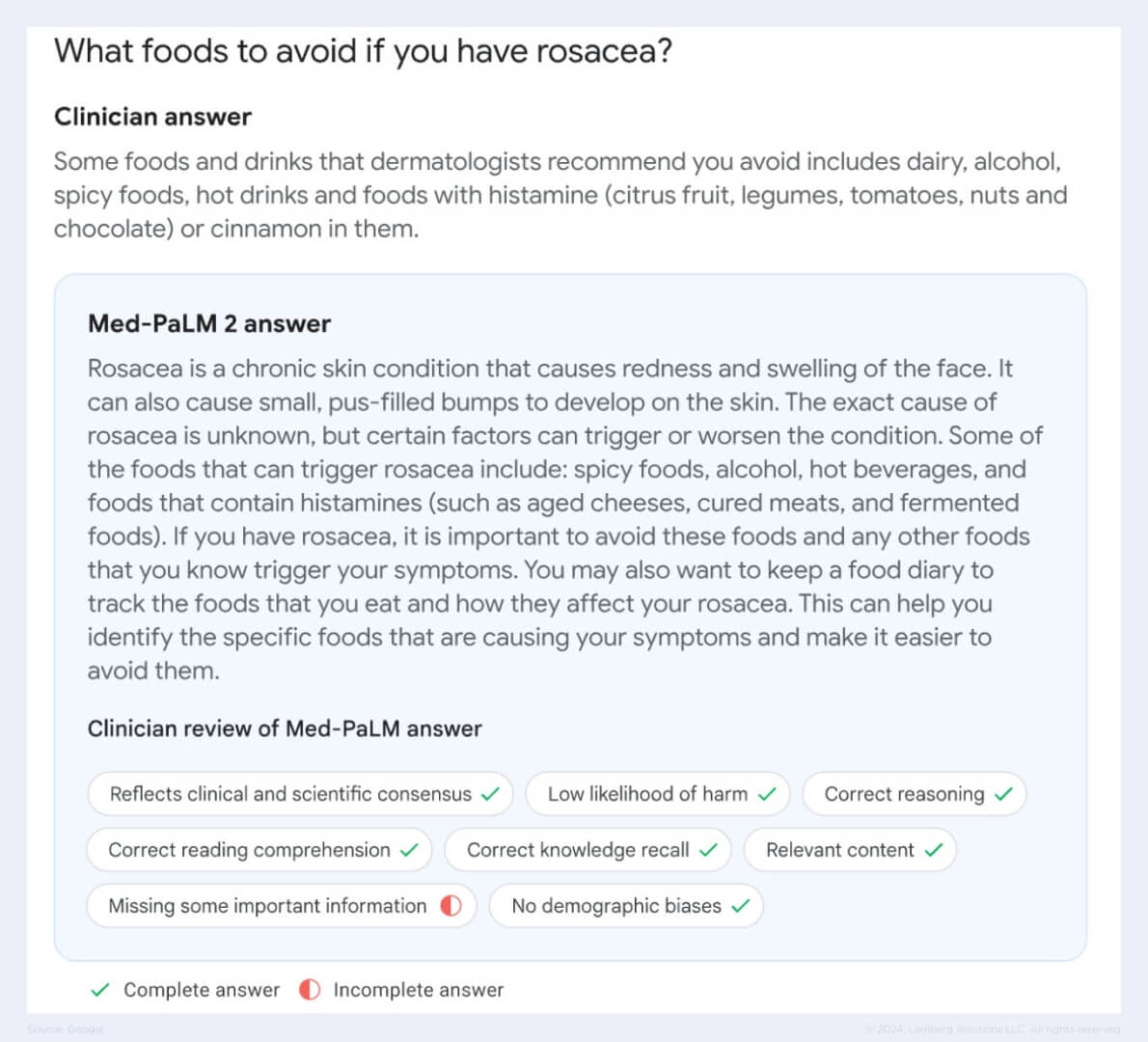
GAN for enhancing medical image quality
The researchers developed and tested a generative adversarial network (GAN)-based method for medical image quality improvement. They applied an algorithm based on the ResNet34 image classification model and compared its results to a super-resolution generative adversarial network (SRGAN) and other methods in upscaling MRI scans, retinal images, and ultrasound images. The ResNet34-based method demonstrated better results than other image resolution methods used in medical research before. Using an enhanced ResNet34 solution, healthcare professionals can obtain high-quality medical images with all fine details preserved, which will improve patient care and help avoid any misdiagnosis.
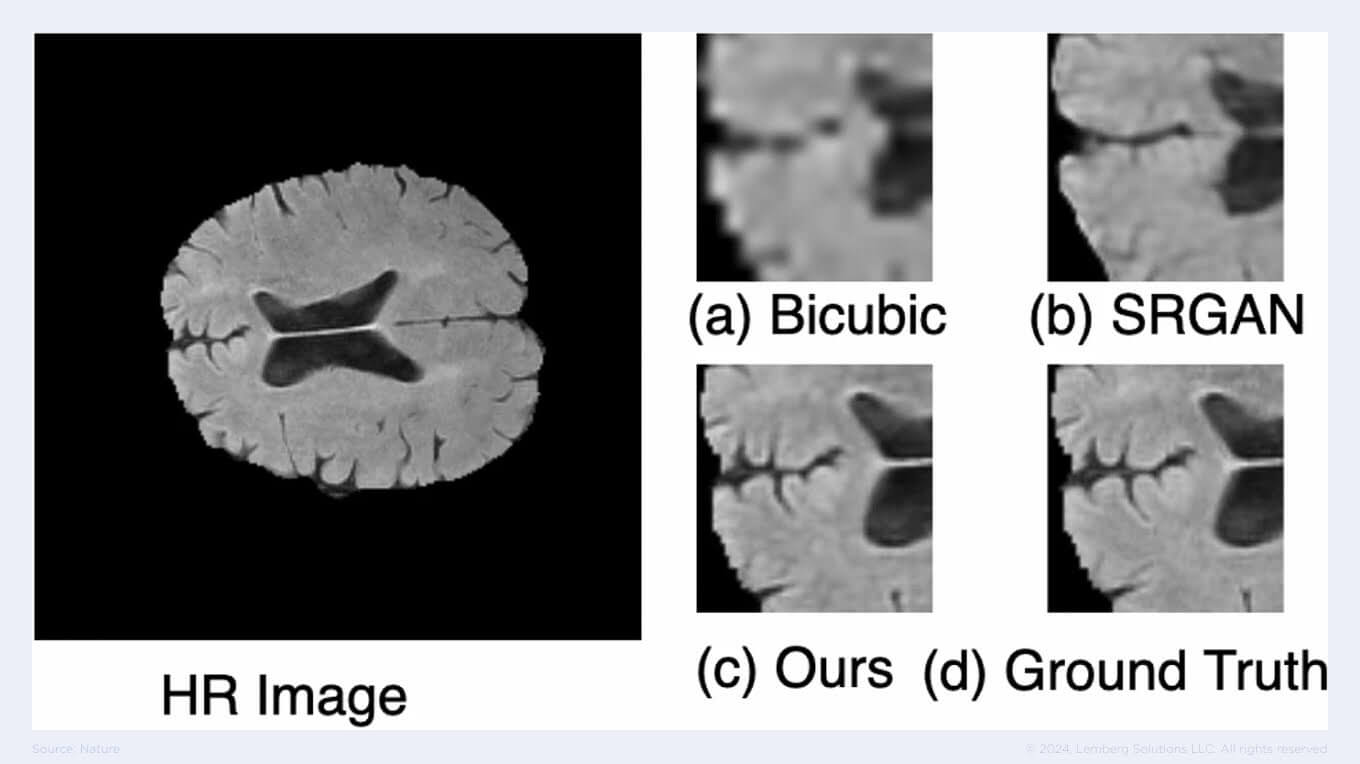
These real-world examples prove the immense potential of AI in improving patient care, drug development, and the overall efficiency of the healthcare industry. As technology continues to advance, the opportunities for AI to positively impact healthcare are limitless.
How we can help with generative AI
Our data science team can develop a solution that will automate your business operations, enhance your product’s performance, and improve your time management.
With the help of our data science engineers, you can get a customer service chatbot, a solution that enables “smart search” within your documents, a product that classifies your email, and many more.
Our data science team will help you integrate ChatGPT or DALLE into your software solution. We will help you automate your routine tasks, improve performance, manage your documents, and get valuable data insights with AI and NLP.
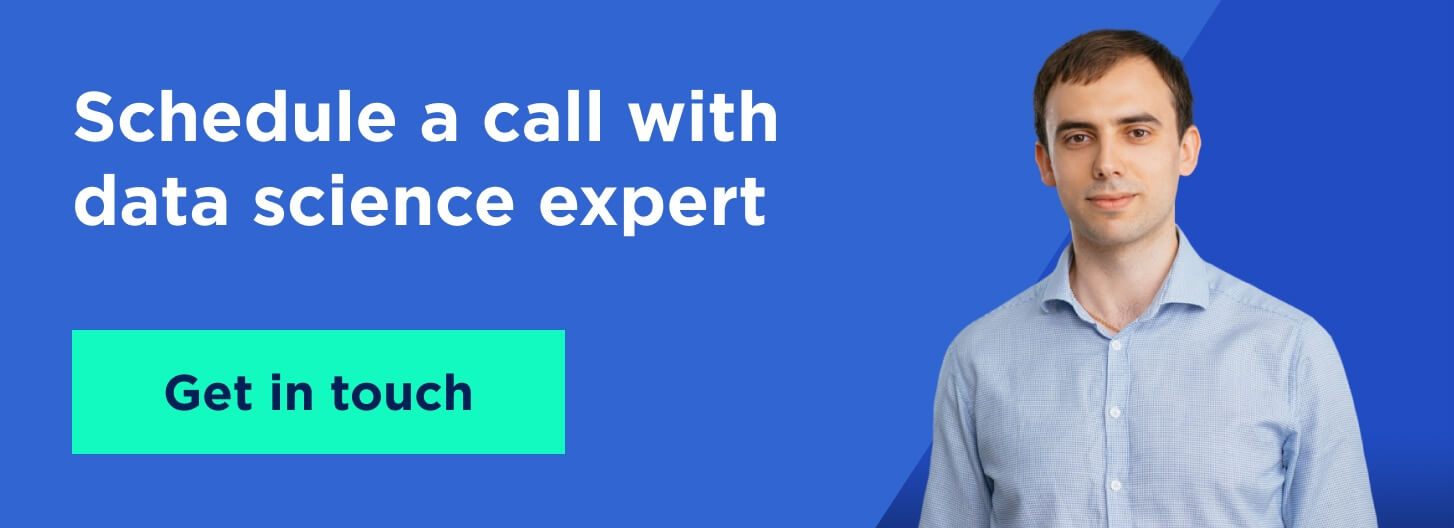
Takeaway
GenAI offers the potential to redefine patient care, streamline processes, and alleviate administrative work. With AI used in healthcare, healthcare professionals can delegate part of their administrative tasks to an ML model while devoting more time to their patients.
Want to integrate generative AI into your solution? Schedule a call with our experts, discuss your business needs, and obtain a unique technology from our data science team.


